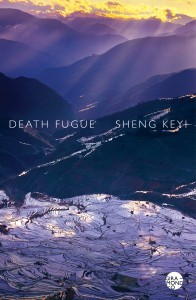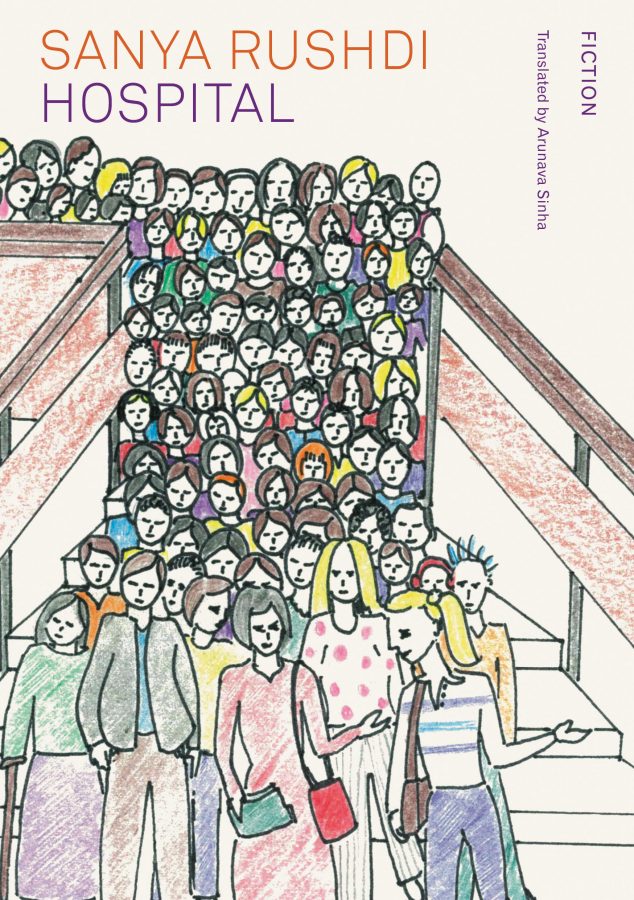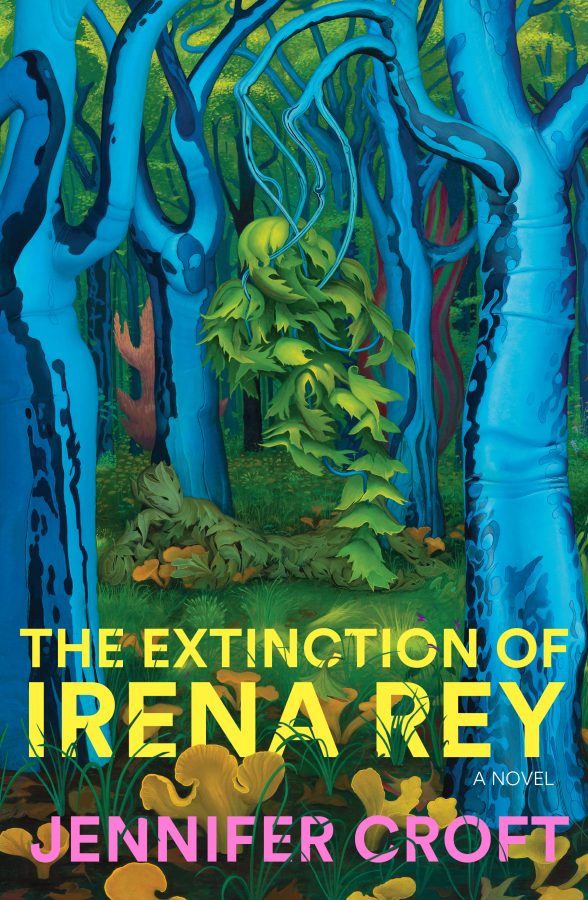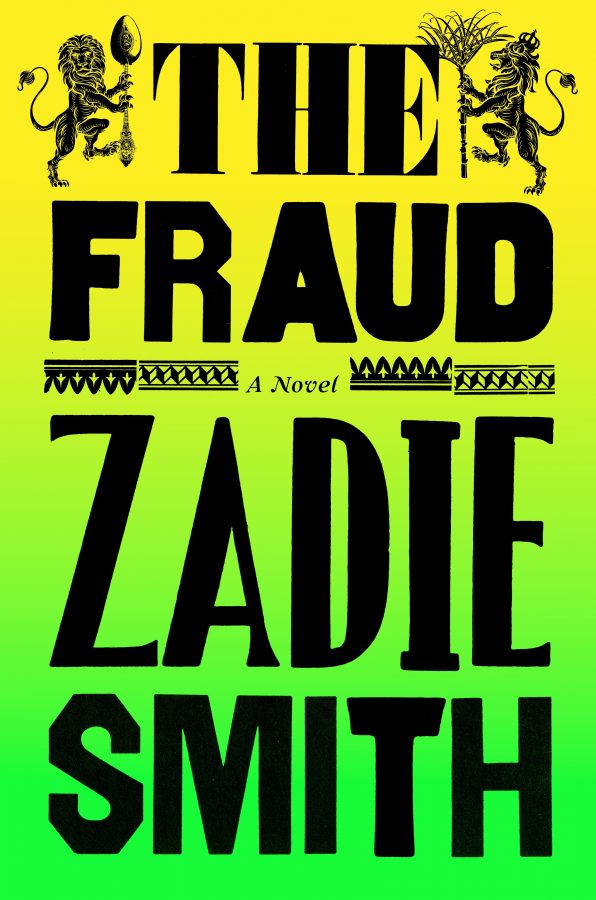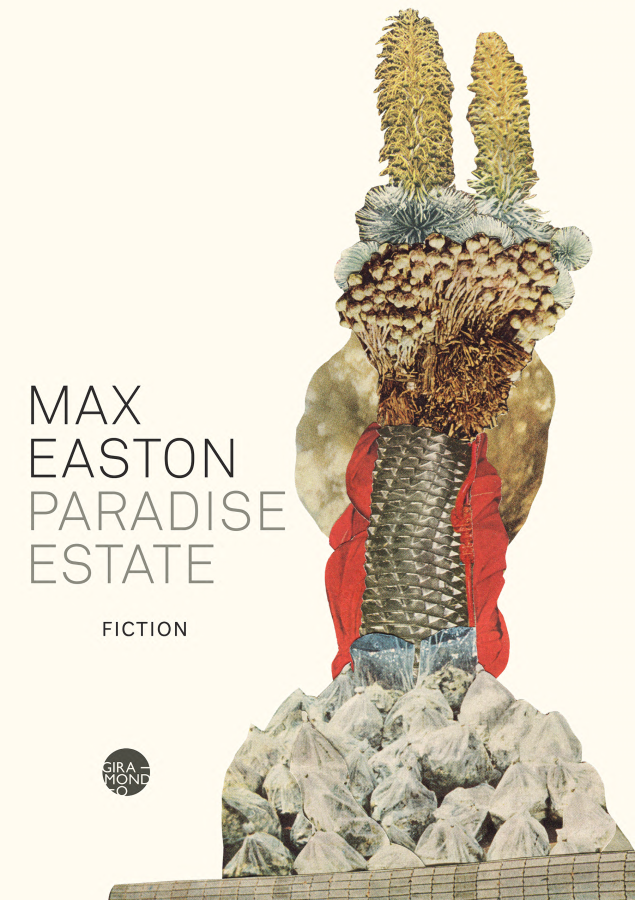Death Fugue is a tale of two Chinas, but not the usual contrast of urban and rural or rich and poor in one of the world’s most unequal societies. Rather, it is a contrapuntal figuring of two opposed dreams of what China could be. ‘China Dream’ is the current mantra emanating from the country’s new supreme leader, Xi Jinping. The promise is an economically rich, militarily powerful and ideally civilised China, run by and for the Communist Party. This replaces the other dream of democracy that was crushed in the protests of 1989, in Beijing and elsewhere, when a generation tried to take China’s long revolution to a more humanistic conclusion. This dream of freedom has returned on the streets of Hong Kong in recent weeks, upsetting the China Dream imposed from the north.
In Death Fugue, the novel by Sheng Keyi now published in English in a remarkable translation by Shelly Bryant, the longings of 25 years ago, personal as well as political, are remembered as occurring in a country that has been left behind. Her fictional state Dayang (Great Ocean) has at its centre a contradictorily Round Square where one day a great pile of excrement mysteriously appears, provoking concern, dissent and finally violence. This becomes known euphemistically as the Tower Incident. A literal shit-heap signifies a system mired in corruption and the ongoing stink it causes. For this outrageous image, read Tiananmen.
The idealistic young take to the streets, but their heroism proves futile against the violent apparatus of the state. In the wake of the suppression of the demonstrations at Round Square, an alternative world evolves, a futuristic Shangri-la where people can live a perfect life if they only comply. Part luxury holiday resort, part cultic retreat, Swan Valley (as it’s called) is an improved, re-ordered version of China that draws on the best from everywhere, more Switzerland than Beijing. The novel’s protagonist, a womanising middle-aged poet turned doctor, and a survivor of the Tower Incident, is teleported there. He can stay as long as he sticks to the rules, but he is sceptical and soon frustrated with this world of ersatz material perfection where everyone tries ‘to outdo the other in artistic, spiritual, or moral excellence’ under the guiding hand of the authorities.
The first to break the rules, however, is the author. Sheng Keyi’s book is a disorientating mix of satire and fantasy that restlessly challenges novelistic and other protocols. ‘Theodor Adorno said that after Auschwitz poetry was impossible,’ her hero recalls, adding, ‘but he later changed his mind.’ Paul Celan’s poem ‘Todesfuge’ (‘Death Fugue’) is a refutation of Adorno and Sheng Keyi takes Celan’s title, 死亡賦格 (siwang fuge) in Chinese, for her refutation of China’s version of Adorno’s famous aphorism: no literature after Tiananmen.
The Chinese government’s silencing of discussion of the events of 1989 has denied a generation of writers the possibility of reflecting on one of the formative ruptures of their lives. Literature has been stunted in consequence, condemned to work around a cognitive and emotional vacuum. Passionately lived values are substituted by cynicism and compromise. Writers have survived and even prospered by turning their attention as directed to the compensatory consumerist present — with satiric gusto in the case of writers such as Mo Yan and Yu Hua, and Sheng herself in an earlier novel Northern Girls: Life Goes On (2004; English edition 2012). But the imaginative pressure of that no-go zone has built, as Louisa Lim documents in The People’s Republic of Amnesia: Tiananmen Revisited (2014). In Death Fugue, through a slippery, elusive interchange between melancholy recall and shiny phantasmagoria, the intimate and the speculative, ‘those born in the 1960s in China’ – to whom the book is dedicated – begin to be heard in a new way.
Among the first literary responses to Tiananmen was poet Yang Lian’s The Dead in Exile, published in Canberra in 1990 — outside China. Yang (b.1955) had already left for New Zealand when the events of June 1989 occurred, having sensed that things in China were volatile. Now he would count himself metaphorically among the exiled dead of his title, along with his poet friend Gu Cheng (b.1956), who would die in a bloody murder-suicide in Auckland in 1993, and Duo Duo (b.1951), who flew from Beijing to a poetry reading in London in June 1989, where his collection Looking Out from Death was published soon after.
Duo Duo, who had worked as an agricultural journalist, travelling the length and breadth of China, was the oracle who first warned me, late in 1988, when I was working in Beijing, that if I stayed on in China for another year I would really see something. The suicide of the then little known poet Haizi (1964-89), who lay in front of a train in March 1989, came to symbolise the desperation of the time. His work now has cult status with young Chinese readers. After June 4, Liao Yiwu (b.1959) composed a long poem called ‘Massacre’, the dissemination of which led to his imprisonment. Years later, as he continued his literary activism after his release, he was refused permission to leave China, until he found his own way out surreptitiously. He is now exiled in Germany. The literary response to Tiananmen has been covert and never without its risks. ‘My Confession’, a mordant personal diary of 1989 by Ah Jian (b.1955), was written nearly 20 years later and published abroad in English in 2009. The translators preferred to remain anonymous.
Ma Jian’s (b. 1953) novel Beijing Coma (2008), translated by Flora Drew, is the most detailed of the various fictionalisations of the Tiananmen protests produced outside China to date. In an interview, Ma Jian has said:
When I write my novels, my first concern is that I live in England, so I have the freedom to write. If I were in China, I would know what I couldn’t publish or would be persecuted for, and I would be controlled by that. In England, I can write whatever I like. So I write about sensitive topics precisely because I have the freedom to, and therefore the obligation.
Such freedom has the potential downside of distance from the audience most likely to be affected by the work, and their changing sense of the meaning of the material. Beijing Coma gives a fascinating inside account of the campus debates in 1989, in which radicals were cautioned by conservatives. One of the latter, Li Keqiang, is now Premier of China. The novel’s hero ends up in a coma after the demonstrations are forcibly suppressed: that coma is an eloquent image for the paralysis that seized China’s space of ideas after Tiananmen. More recently, Yiyun Li’s Kinder than Solitude (2014) addresses the subject, as does Xiaolu Guo’s I Am China (2014), though less directly.
In Women Writers in Postsocialist China (2014), Kay Schaffer and Xianlin Song credit Hong Ying’s (b.1962) Summer of Betrayal as, for their purposes, ‘the only direct narrative to address the trauma of the Tiananmen Massacre and its aftermath written by a participant and observer of the event’. Summer of Betrayal was published in Taiwan in 1992, after the author left China for London, where it appeared in English in 1997. It has never been published in China. Schaffer and Song note, however, that ‘the Tiananmen incident’ has been ‘a catalyst’ for other writers in China, who ‘are more circumspect in their allusion to the event’, notably Chen Ran (b.1962) in A Private Life (1996; English edition 2004), where, as in Death Fugue, the author invents a ‘language of allusion’ and ‘deploys fictitious names for the locale in which the protagonist experienced a “tragic summer”, mentioning neither Tiananmen Square nor Beijing specifically by name’. For Shaffer and Song, ‘through her introspective style of writing Chen transcends the political, while also engaging in a searing critique of patriarchal relations in China and the silence surrounding the Tiananmen Square Massacre’.
Sheng Keyi’s canvas in Death Fugue is broader, her probe deeper. Her protagonist, Mengliu, has renounced his vocation as poet after the loss of Qizi, his abiding love, who plays an inspiring and heroic role in the protest movement at Round Square and is separated from him, presumed dead, in the violence and chaos that ensues. He becomes a surgeon instead, a competent professional, while continuing to look for her, or her replacement in other women. This brings him eventually to Swan Valley. He lusts and dreams, self-obsesses, self-justifies and self-pities in a characteristic way. Sheng writes him as a rich portrait of the impotent potency, or potent impotency, that has made Chinese intellectuals (mostly male) ineffectual in shouldering the obligation to change their society for the better. They feel useless, and they are.
The new China dream wants artists and thinkers to line up with official policy. That is how the Confucian precept of ‘rectifying the names’ is interpreted. The writer is expected to describe the state in a way that makes it look benign and virtuous, naming the good and shaming the bad as policy determines. The culture’s respect for the life of the mind means that intellectuals are valued when their talents serve the ruling agenda, rather than the rulers having to respond to critique from below or outside by superfluous individuals.
In Swan Valley, Mengliu’s poetic gifts are wanted. His poetry is to be reworked into a more refined idiom for the public good: to ‘serve the people’, in Chairman Mao’s foundational phrase for the People’s Republic’s cultural policy, ‘red, bright and shining’. ‘You will become a poet with impeccable character,’ the robotic spiritual leader of Swan Valley tells Mengliu. His failings as an ordinary human being will be purged in the interests of achieving perfection. ‘What use is humanity?’ the leader asks. ‘It will make a mess of everything.’
Mengliu has plenty wrong with him:
If you observed carefully, you could see clearly the traits of one who belonged to the 60s generation — teeth stained by tetracycline, a lack of calcium, shattered ideals and a perplexed idleness — rather like a mirror covered with a layer of dust that made you long to reach out and wipe it clean.
But at Round Square his poetry cuts through:
We will break the tyrant’s muzzle
And slowly make our escape.
His is ‘the crooked timber of humanity’ out of which ‘no straight thing was ever made’, in the phrase from Kant that Isaiah Berlin quoted to lash totalitarian ideologues, and which pops up here in an exchange at an art opening in Swan Valley. ‘Do you feel that Swan Valley is perfect?’ Mengliu asks. The reply comes, as ‘a waitress with a flower-trimmed apron served them onion rings, French fries, corn-breaded calamari and coffee’:
Of course, human nature, this crooked piece of wood. It is impossible for us to make anything absolutely straight.
But they are determined to try, at least on a collective level, and it’s scary.
Poets and the power of poetry are important in this story in a way that might seem exaggerated to Western readers. The written word is taken seriously in Chinese tradition, at least in theory. If names are to be rectified in accord with Confucian models, then language that offends, or undermines the official line, must be reshaped or silenced. That is why within China the writing of Tiananmen has been forbidden.
The contrast with visual art is revealing. A new Chinese avant-garde found its creative energy in the dissenting atmospherics of the late 1980s and went on to achieve international fame and fortune. Though suspect, art was harder to police. Text is easier to read literally, to scan and censor; images can baffle simplistic interpretation. How ironic that some of the most iconic works by leading contemporary Chinese artists manage to evoke the state’s June 4 violence against its citizens elliptically enough to avoid retribution. Zhang Xiaogang’s enigmatically empty ‘Tiananmen Square’ (1993), for example, sold for $2.3 million at auction in Hong Kong in 2006, while the overt cheerfulness of Shanghai artist Yu Youhan’s ‘Flowery Bicycle’, a key piece in the collection of the Gallery of Modern Art, Brisbane, is poignantly undercut by its telling inscription: 1989.
Sometimes, however, an artist can be too literal. Chinese-Australian artist Guo Jian commemorated the anniversary of the Tiananmen protests in his studio outside Beijing this year with an artwork that consisted of a replica of the Square covered with 160 kilograms of bloody pork. He was detained and deported.
Writers can be accorded great respect and can be treated well, but their work comes under scrutiny because of the prestige and permanence of their medium. Nor is their work as immediately legible across the borders of language to an international community that might speak out on their behalf. Artist Ai Weiwei (b.1957) is the master provocateur in this cultural space. His father Ai Qing was a poet, a revolutionary who became vice-chairman of the Chinese Writers’ Association after his post-Cultural Revolution rehabilitation in 1979. This distinguished lineage still indirectly helps his son as he calculates his clever, courageous moves.
Sheng Keyi wants to wipe the mirror clean for her poet, which is what a determined writer can do. Too young to have experienced Tiananmen directly — she saw the Orwellian propaganda version on television in her home town as a teenager — she unleashes her imagination in order to understand the dialectic between what happened then and what China is becoming now. Mengliu is the everyman offspring of a one-night-stand between an orphan soldier and a country girl, his missing mother. He quests for this eternal feminine across the novel’s surreal topography, only to find her morphed into something unrecognisable and unreachable. While he appreciates the tasteful opulence of Swan Valley — the golden toilet bowls, the antique furniture and stained glass, the diamonds used as marbles — he also recognises it as a clinical re-education site, a sanatorium of total surveillance. When he makes a move on an attractive woman who seems to want him, an alarm goes off. ‘You still don’t get it,’ she says. ‘Swan Valley prohibits sexual intercourse.’ That is because of its policy of ruthless eugenics in service of creating a superior race. ‘We use artificial insemination,’ she goes on. ‘A clean, painless little procedure.’
The leaders of Swan Valley have improved on their foundational text, Thomas More’s Utopia, with a book on The Principles of Genetics. Mengliu is matched with his ideal genetic partner, a woman he doesn’t like, and the procedure happens:
their offspring would be a one-hundred-per-cent prodigy … the most perfect creation in history … Strong genes build strong countries … when a country is involved in international conflict it is a contest based on the quality of the people and their knowledge … riches and power begin with good genes, grasping the spirit of education … from birth … We … will capture the world’s attention in a few years.
So the theory goes. It would be terrifying if such passages couldn’t also be read as screwball comedy, an absurd parody of some of the more extreme, totalising Chinese rhetoric today. The ideology of perfection leads to death camps: in Swan Valley elimination of unwanted people happens early and late. ‘Flawed, rejected babies are discarded’ at a waste disposal site, while the nursing home for the sick and elderly is secretly a crematorium: ‘This is a place where they burn you alive,’ says one escapee. The beauty of Swan Valley is a façade behind which a prison cell and a torture chamber are revealed as the novel goes on. The tortures inflicted on women in the name of reproduction — a recurrent theme for Sheng Keyi — are the worst: ‘She had never been master of her own body,’ one character observes of a woman who becomes a sacrificial victim.
Yet the grand project is under pressure, as an epidemic proves uncontrollable and Swan Valley’s hospitals can’t cope. The cost of perfection is too high. Even the attempt to produce poetry to order is doomed to fail: ‘People in shackles only write shackled poetry.’ After Mengliu confronts this reality in the final shock of an accelerating plot, he can return to the world he came from, to a role as advisor on a film about the ‘Tower Incident’ called Death Fugue. ‘Sometimes art is the only means by which we may find out the truth …’ is the voice he heeds at the end.
In Sheng’s imagination, the flawed idealistic humanism of Tiananmen has mutated into something like its opposite, glorious and terrible, a boundless fantasy of power, riches, environmental control and non-natural selection. Yet the further Mengliu journeys, the more inescapably the past casts its dark shadows on the gleaming, perfumed present and the more inconsolable he feels.
Death Fugue extends the counterpoint of historically located realism and strange fantasy in Sheng Keyi’s earlier work. In her story ‘A Village of Cold Hearths’, set in a rural village during the catastrophic famines of 1958-61, the account of the desperation and cruelty of the villagers is given an original twist by the nightly appearance of an irresistible fish-woman. A young farmer falls in love with her, only to sacrifice her to the exigencies of material survival. His magical fish lover feeds and haunts his being, like a creature from the classic compendium of stories he reads, Strange Tales from Liaozhai Studio – the author’s signal that her own ghostly tale deals with what is unseen, as much as what is there to be seen. Female consciousness and the plenitude of a female life force are cannibalised by male desire and domination, expressed in destructively political forms.
Northern Girls: Life Goes On, Sheng Keyi’s full-length novel published in China in 2004, is a female picaresque that follows the divergent fates of two young women from the backblocks who head for the freewheeling Special Economic Zone of Shenzhen in the 1990s. In this epicentre of China’s export-led boom, they encounter all the predations of the times, where every opportunity is tainted with exploitation and treachery. The girl who dreams ends up tragically ruined. Her friend, Xiaohong, is sharper and stronger in her large-breasted individuality and lives to struggle another day. In an afterword for the English translation, the author writes:
Like many who make up the lowest strata of society, she possesses an impregnable vigour and vitality. In her honest way of living, she penetrates the duality of those around her.
Xiaohong takes responsibility for herself, empathises with others, acts or resists as necessary. Her survival impulse ‘drives her ever forward’, Sheng tells us, ‘a reality that many are forced to live through’ in today’s China. Northern Girls is a warm tribute to these Chinese women, as well as a flaying expose of the brutal sexual politics they must deal with.
Schaffer and Song find in Sheng’s writing ‘a rare insight, energy, and vitality’, noting how her protagonists posit ‘sexual desires as innate, instinctual and natural for women and men, only to be exposed to political, social and sexual inequality within an exploitive economic environment and an exacting patriarchal social system’. At the same time, they enjoy the ‘sardonic humour and narrative irony’ as China’s ‘much-glorified economic reforms’ are exposed from below by these migrant women for their human cost.
The women in Death Fugue exist in a more rarefied space. They are highly cultivated, but always with a teasing ambivalence about their duty to Swan Valley and their attraction to Mengliu. From Northern Girls to this new book there is a transformation of genre and theme, extending the author’s feminist analysis of both the politically courageous late-1980s and the overweening, utopian society that has been conjured into existence as an alternative. Male fantasy, its manipulation and its limits, is explored here with an oscillating insider-outsider perspective, marked, at one ludic extreme, by the repeated references to women’s breasts as fruit. As Mengliu sees it, his Swan Valley lover’s ‘chest boasted a pair of loaded coconuts, uniquely lethal weapons with which to wage her revolution … a potent pair of aphrodisiac tear-gas canisters’. The personal is political indeed.
The writing is sometimes quivering, feverish, wild, given to pursuit of similitudes in a Chinese style that is here more yin than yang. Compare, for instance, Mo Yan’s grounded animal earthiness in Life and Death are Wearing Me Out (2006) with Sheng’s flickering, code-switching image-making in some of the most intense passages of the book, where it is as if a fox spirit from Strange Tales from Liaozhai Studio has taken over the writing. These stylistic excesses have the effect of dizzying and unsettling the reader, especially when they are interspersed with grand, abstract inquiry. Such writing can be understood in terms of a prismatic changing of positions, where nothing is fixed. In this, it revels in the looser protocols of Chinese fiction, whether romance or erotica.
Sheng’s fantastically overheated story ‘An Inexperienced World’ portrays an older woman writer who desires the athletic young man sitting opposite her in a train compartment. She is alternately the woman who feels with an overwhelmingly intensity and the writer who overrides such feeling. A world of experience confronts a world of inexperience, as the protagonist understands it. The ‘identity of “writer” is draped on her like a tiger’s skin’, turning her clarity of perception into a kind of torment: ‘The outsider’s role creates a sense of disgust, filling the woman with self-loathing …’ Conflicted identifications, interiorities, roles and wants constitute a pathology. There can be no point of view that is not turning on itself.
Death Fugue depicts a world of deforming power and abused desire collapsing under the weight of hubristic self-creation. Grotesquerie, lyricism, anomie, cool humour and ironic grandiosity play together in a fugal manner, now andante, now scherzo, always returning to the vision of doom from which this world is in flight. While Celan may be Sheng’s reference point, a closer affinity is with the chronicling of disintegrative excess that overflows its bounds in Robert Musil’s The Man Without Qualities (1930-43) or in Joseph Roth’s manic prose or, in a quite different context, in the work of Philip K. Dick. Plenty of Death Fugue is gorgeous, overwrought or tongue-in-cheek, as it bleeds into soft porn and sci-fi at the edges. Much of it has a shocking immediacy, especially the scenes at the Square, rendered in subtly attentive prose of gripping power. More surprising, and moving, is the eloquent urgency of the argument, as in the novel’s final address:
Some may think that freedom of expression depends upon one’s environment, but I want to say to all poets and writers and artists that the environment shouldn’t be the real issue. The real environment is in your mind. If you have a flame in your heart, then you can make any kind of water boil.
Anyone remotely interested in an insider’s untrammelled, authoritative vision of what’s going on in China will jump into this fascinating cauldron of a novel, at risk of being boiled alive.
References
Ah Jian, ‘1989. My Confession,’ HEAT 20, new series (2009).
Chen Ran, A Private Life, translated by John Howard-Gibbon (Columbia University Press, 2014).
Duo Duo, Looking out from Death, translated by Gregory Lee and John Cayley (Bloomsbury, 1989).
Hai Zi, An English Translation of Poems of the Contemporary Chinese Poet Hai Zi, translated by Zeng Hong (University of Michigan, Edwin Mellen Press, 2005).
Hong Ying, Summer of Betrayal: A Novel, translated by Martha Avery (Grove Press, 1998).
Louisa Lim, The People’s Republic of Amnesia: Tiananmen Revisited (Oxford University Press, 2014).
Ma Jian, Beijing Coma (Random House, 2008).
Ma Jian, ‘Ma Jian on Chinese dissident literature,’ Five (4 May 2012).
Mo Yan, Life and Death are Wearing Me Out, translated by Howard Goldblatt (Arcade, 2008).
Jane Perlez, ‘Chinese Writer, Tackling Tiananmen, Wields “Power to Offend’’,’ New York Times (10 October 2014).
Kay Schaffer and Xianlin Song, Women Writers in Postsocialist China (Routledge, 2014).
Sheng Keyi, ‘An Inexperienced World,’ translated by Eric Abrahamsen, HEAT 20, new series (2009).
Sheng Keyi, ‘A Village of Cold Hearths,’ translated by Brendan O’Kane, Peregrine, An English Companion to Chutzpah magazine, 6 (2012).
Sheng Keyi, Northern Girls: Life Goes On, translated by Shelly Bryant (Penguin, 2012).
Yang Lian, The Dead in Exile, translated by Mabel Lee (Kingston, ACT, 1990).
Yu Hua, China In Ten Words, translated by Allan H. Barr (Duckworth, 2012).
